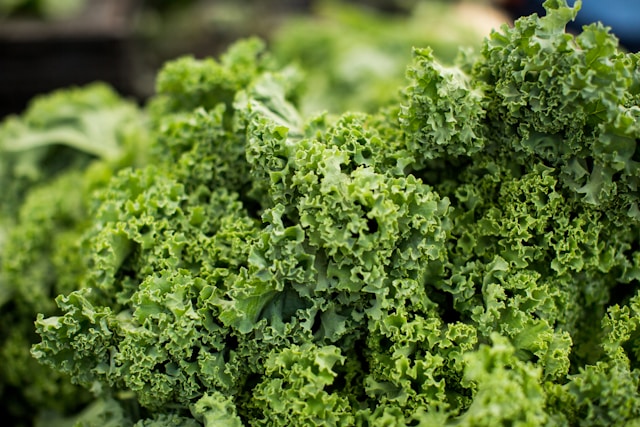Taking Supplements While Intermittent Fasting: All You Need To Know
January 11, 2022

While Intermittent fasting has gained tremendous popularity in the fitness and health world over recent years, more people seem to have diverse questions about safe fasting habits as this happens. One of these questions is the taking of supplements.
Visit any wellness forum, and you're bound to find different varieties of the same question:
- Is it safe to take supplements while intermittent fasting?
- Will supplements break my fast?
- When should I take my supplement while intermittent fasting?
- Which supplements are ideal while intermittent fasting?
- Do I need intermittent fasting supplements?
- Where can I buy periodic fasting supplements?
The list goes on.
Uncertain answers to these questions can raise your concern about safe fasting or even affect your health. So, to set the record straight and help you get consistent results from your fasting, here is everything you need to know about taking supplements while intermittent fasting.
What is Intermittent Fasting?
While intermittent fasting, also called intermittent energy restriction (IER), is a well-known dietary practice that results in the body's energy metabolism due to ketosis (a fat-burning phase), the fasting approach has seen many promotions partly due to the impact on weight management and cardiometabolic health.
Using this dietary approach, individuals switch between eating and fasting periods. IER isn't strict on the food types to take. Instead, it focuses on the specific time to take in food. These intervals need to be regular, with fasting windows between 12 to 24 hours.
Consequently, while intermittent fasting isn't a diet in generally accepted terms but is more appropriately described as an eating pattern, the standard IER pattern is 16 hours of fasting per day, also known as the Leangains protocol. In this protocol you skip breakfast and only eat between an 8-hour window. The other method is a full day fasting on two days in the week.
During these prolonged hours of no-calorie-containing food, the body shifts from glucose as a primary energy source to fatty acid-derived ketones. This metabolic transition results in hormone levels and is cited for several health benefits.
Benefits of Intermittent Fasting
Among the changes that occur in the body during fasting are:
- Insulin sensitivity: While intermittent fasting, insulin levels reduce, and insulin sensitivity improves significantly. This makes stored body fast more available for burning.
- Human Growth Hormone (HGH): Growth hormone levels surge at high as 5X, leading to muscle gain, rapid fat loss, etc.
- Gene expression: Longevity and protective changes occur in the function of genes.
-
Cellular repair: Cells begin cellular repair processes like autophagy during the fasting state.
Given the myriad of benefits of IER, it's natural to wonder if supplements like probiotics can rob you of any positive effects.
Are Supplements Needed at All?
Most people practicing intermittent fasting consider combining dietary supplements a vital subject, and rightfully so! So, say it's possible to suffer nutrient deficiencies during intermittent fasting. Contrary to this notion, you should be fine if the meals you take during your eating window consist of whole, healthy foods.
Here is a better way of understanding it. While intermittent fasting doesn't restrict the quantity of food you consume, it only limits the hours you can eat during the day. Therefore, if your existing meals are adequately nutritious, you won't miss out on nutrients like vitamin D3 or iron.
However, suppose you're someone who needs to add dietary supplements to your meals. In that case, it's worth noting that the type or timing can negatively or positively affect your fast and the desired health or metabolic benefits. This is why every weight loss journey or fasting routine must prioritize health and wellness above all else.
With this priority in mind, you can begin finding the perfect supplements and when to take them for the best results while intermittent fasting.
Can Supplements Break Intermittent Fasting?
The primary worry is whether supplements can break your fast. The answer isn't so straightforward since not all supplements are the same. Certain supplements have no calories and will not interfere with your fasting. You can take these types on an empty stomach and not fear the negative impacts on your fasting benefits or overall health.
However, the moment you take some other supplements, you're no longer fasting. Figuring out which is capable of breaking your fast can enable you to determine whether to consume them during your eating period only or while you're fasting.
Having understood that the primary object of intermittent fasting is to transition into a ketosis period, you want to avoid any edible that prevents this metabolic shift while intermittent fasting. This includes drinks, foods, and of course, supplements that contain calories, no matter how small. These calorie-containing edibles will forcibly increase your glucose and insulin levels, negating the purpose of your fast. Likewise, supplements or foods that increase insulin levels alter desired fasting results.
Dietary Supplement to Avoid During Fasting
Among the supplements that can discontinue your intermittent fasting are:
- Amino acids and amino acid combinations (e.g., Branched-chain amino acids or BCAAs)
- Meal replacement supplements
- Protein powders that usually contain about 100 calories per scoop
- Effervescent tablets and electrolyte drink powders containing sweeteners
- Supplements found in chewable or gummy tablet forms that are typically containing sweeteners
- Copper or zinc
- Magnesium
- Fat-soluble vitamins like vitamins A, D, and K
- Omega krill complex or krill oil
- Potassium iodide or kelp powder
-
Products containing extra ingredients and sweeteners such as fruit juice concentrates, cane sugar, and starches.
Again, this doesn't mean you need to avoid supplements altogether while intermittent fasting. Instead, you're better off taking them with your meals or during your eating window. Next, let's look at some of the best supplements to take on an empty stomach while fasting.
The Best Supplements During Intermittent Fasting
Firstly, you won't find any special supplement that can completely substitute the food you need to eat. But there are a few aimed at promoting your general health while intermittent fasting. Secondly, it's highly recommended to speak to your doctor before starting any supplements, mainly if you had no nutrient deficiency before taking up your fasting regimen.
Nevertheless, if you're about to practice intermittent fasting, you have several supplements to choose from, and your doctor can help determine the perfect one for you. Bear in mind, the minerals and nutrients from your food might already be enough, and should this be the case, you could have a surplus by taking supplements.
But the right supplements can help subdue your appetite, while intermittent fasting enables you to shift into ketosis quickly. Your options include:
- Curcumin - limits insulin resistance.
- Soluble fiber - Extends satiety between meals.
- Omega-3 fatty acids - Curbs appetite and hunger
- Medium-chain triglycerides (MCT) - Supports metabolism
- Electrolytes like calcium, potassium, and sodium.
- Water-soluble vitamins - The body doesn't store them but excretes them daily. Some examples are B-complex vitamins such as B1, B2, B3, vitamin C, etc.
- L-tyrosine
- Folic acid
- Probiotics
- Iron
- Prebiotics
- Creatine
-
Exogenous ketones
Read on to learn what the research says.
Research Supporting Intermittent Fasting Supplements
In a recent study on this subject, researchers examined the impacts of modified 5:2 intermittent fasting and dietary supplements in overweight adults that were generally healthy. They researched during 52 days in the winter holiday. Within the two modified fasting days of each week, the intervention group reduced-calorie consumption to 730 calories per day by taking in a nutritional shake four times daily.
After the fasting periods, the participants enjoyed an unrestricted diet for the rest of the five days of the week. The group also took extra supplements to support weight loss, such as soluble fiber, omega-3 fatty acids, and curcumin.
Per the results, members in the diet intervention group recorded an overweight of 2.9Ib loss of weight. When comparing this to the control group, who ate according to their usual dieting habits and took one multivitamin tablet each day, the fast group also observed massive improvements in different metabolic markers. These markers include a rise in high-density lipoprotein (HDL) cholesterol and reduced triglycerides.
These results indicate that complementing with dietary supplements like soluble fiber and nutritional shakes while intermittent fasting can promote metabolic health and assist weight management.
Further Research on Electrolytes for Fasting
The existing research indicates that sodium, potassium, and body water are energetically excreted while intermittent fasting. With regards to electrolytes, there's substantial sodium excretion, known as natriuresis, which is highest around day four of fasting. Potassium also follows in a similar pattern yet at a less pronounced rate.
In an experiment conducted in the 1970s, a morbidly obese man practiced fasting for 392 days. This intervention led to the loss of more than half his initial body weight. Per the researchers, the subject endured no complications worth recording.
Interestingly enough, his potassium and sodium levels plummeted significantly within the first 100 days of the intervention. However, he gradually stabilized, but it remains a question whether the stabilizing electrolytes were sourced from his bones because the body resorts to internal sources when it's short of electrolytes.
In a different study, the research adopted another method by administering 46 obese adults a daily electrolyte supplement during the period of fast for six weeks. The average weight lost by the participants was 56 pounds. Thanks to the electrolyte supplements, they maintained normal electrolyte levels while intermittent fasting.
When Should You Take Dietary Supplements?
As you might have guessed, this will depend on the type of supplement, if it supports your fasting or breaks it. But generally, certain supplements are better taken when you eat. You want to consume these types with your meals, ensuring better absorption. Also, you can experience stomach upset after taking supplements such as zinc on an empty stomach.
To stay on the safer side, you need to pay close attention to your body and how it feels. Suppose your stomach can't tolerate supplements without food, no need to force it. Instead, try your supplements 20 to 30 minutes before eating to see the effects. Keep this in mind while intermittent fasting.
Can You Take Tea, Bone Broth, or Coffee?
Unsweetened tea and black coffee contain calories, but the amount is negligible, meaning they have less than five calories. This makes their ability to break your fast quite unlikely while intermittent fasting. However, if you're a purist who wants to stick to the strictest regime, you want to take only water. But for those that need caffeine, coffee and tea won't do any harm.
On the other hand, bone broth is a well-known keto fasting supplement since it provides plenty of satisfaction and replenishes minerals and nutrients while fasting. It contains minimal proteins and calories, lacks any carbohydrates, so taking a limiting amount during your fast won't affect your fat-burning or ketogenic benefits of fasting in any significant way.
Regardless, you put off the bone broth entirely until you are in your eating window while intermittent fasting.
Tips For Supplementing During a Fast
For those consuming supplements while intermittent fasting, here are some tips to help make the most of this dietary approach.
-
Choose supplements that lack sweeteners or are made with calorie-free sweeteners. They are also called non-nutritive sweeteners (NNS), and they often replace calorie-containing sweeteners in some supplements. Some examples are monk fruit extract (lo han guo), stevia leaf extract, or stevia (stevia rebaudiana).
-
Before committing to any dietary changes like IER and supplements, seek the advice of your primary health care provider first.
-
When suitable, take your supplement during your "feeding window." But keep in mind that certain supplements are best taken at specified times of the day or on an empty stomach.
-
Always find out the directions of use and "supplement facts" from the labels on the product to learn the number of calories in it.
- Exercise caution when dealing with supplement ingredients capable of further decreasing your blood glucose levels. The components shown to lower blood sugar are berberine, chromium picolinate, and psyllium husk.
The Bottom Line
Yes, it's safe to take certain supplements while intermittent fasting. Will they break your fast? It depends on which supplement you're consuming. Ultimately, you want to meet your body's nutritional demands while fasting. Even though food is the best source to obtain these nutrients, supplements will also do, especially while intermittent fasting. For those with serious concerns for any nutrient deficiency, it's best to consult your doctor for help picking the right supplements for you. This should come before you subject your body to long periods of no calorie intake.
References
https://earths-wisdom.com/blogs/wisdom-news/did-you-know-five-5-intermittent-fasting-facts
https://www.ncbi.nlm.nih.gov/pmc/articles/PMC6128599/
https://www.ncbi.nlm.nih.gov/pubmed/30683819
https://www.ncbi.nlm.nih.gov/pubmed/15640462
https://www.ncbi.nlm.nih.gov/pmc/articles/PMC329619/
https://www.ncbi.nlm.nih.gov/pubmed/2355952
https://www.ncbi.nlm.nih.gov/pubmed/12425705
https://www.ncbi.nlm.nih.gov/pubmed/24048020
https://www.ncbi.nlm.nih.gov/pmc/articles/PMC2622429/
https://www.ncbi.nlm.nih.gov/pubmed/21106691
https://www.ncbi.nlm.nih.gov/pubmed/25373098/
https://www.ncbi.nlm.nih.gov/pmc/articles/PMC6835497/
https://www.ncbi.nlm.nih.gov/pmc/articles/PMC6436006/
https://www.ncbi.nlm.nih.gov/pmc/articles/PMC6436006/
https://www.amjmed.com/article/0002-9343(71)90152-5/fulltext
https://www.ncbi.nlm.nih.gov/pmc/articles/PMC2495396/pdf/postmedj00315-0056.pdf
https://www.ncbi.nlm.nih.gov/pmc/articles/PMC2625789/?page=4
https://www.ncbi.nlm.nih.gov/pubmed/18397984?dopt=Abstract
https://academic.oup.com/ajcn/article-pdf/67/3/519S/23189263/519s.pdf
Leave a comment
Comments will be approved before showing up.
Also in Wisdom News

The Importance of Vitamin K2: Unlocking its Role in Health and Wellness
September 22, 2024

The Importance of Omega-3 Fatty Acids: A Comprehensive Review of Their Effects on the Body
August 02, 2024

The Benefits of Mindfulness Meditation for Mental Health
July 12, 2024
Disclaimer: These statements have not been evaluated by the FDA. These products are not intended to diagnose, treat, cure or prevent any disease.
© 2026 Earth's Wisdom®. All Rights Reserved.




